Are you struggling to conceive with PCOS? Or want to know what PCOS is, its symptoms, and how it relates to pregnancy? Keep reading because we have gathered and listed the factual data in this blog post.
What is Polycystic Ovary Syndrome (PCOS)?
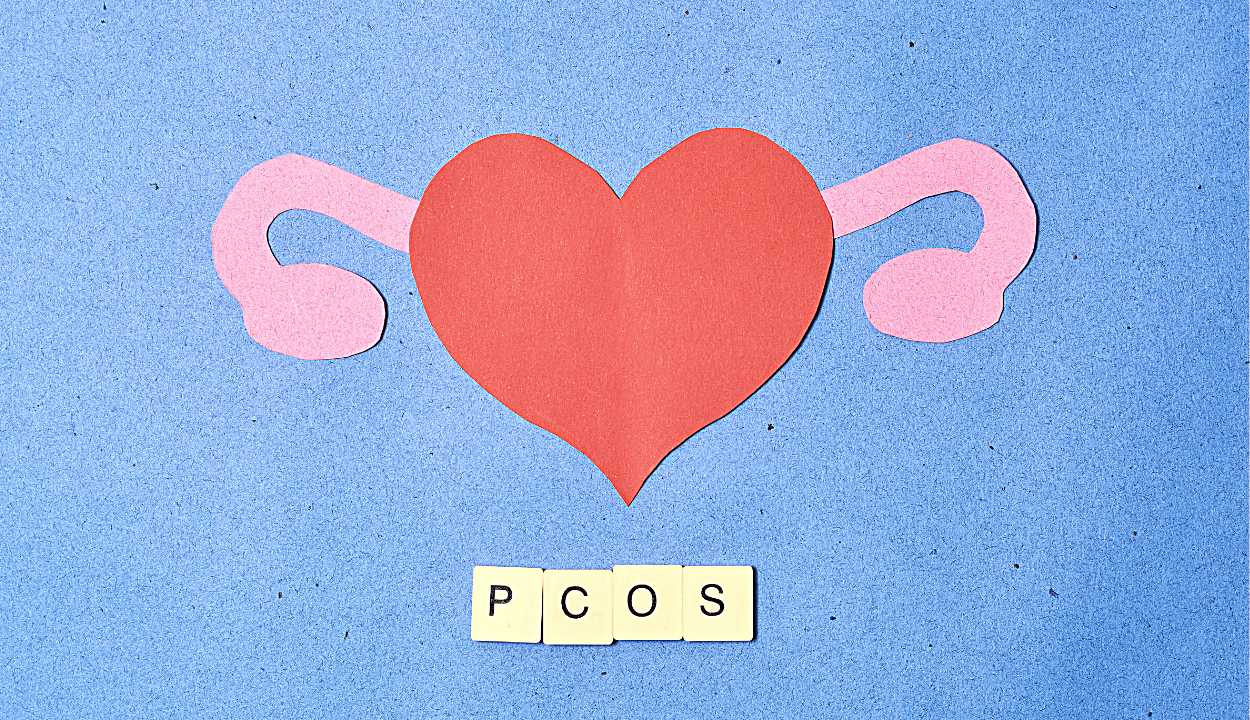
Polycystic Ovary Syndrome, commonly referred to as PCOS, is caused by an imbalance of reproductive hormones, and this disturbance can lead to severe issues related to the ovary.
In normal females, an unfertilized egg is ejected out of the female body during ovulation each month. PCOS can disrupt this natural phenomenon of egg release that ultimately causes the female body to produce a higher amount of male sex hormones, i.e., androgens.
When androgens are gathered in such a large amount, it disturbs the menstruation cycle in females, making it difficult to conceive. Although women with PCOS can still get pregnant, there are certain situations when naturally conceiving becomes difficult due to irregular ovulation.
PCOS Signs and Symptoms
PCOS is, somehow, responsible for infertility in females and causes several symptoms that directly impact their physical and mental health. Excessive androgen levels in females lead to various symptoms, which can be dangerous for the female body.
PCOS symptoms may start appearing shortly after a female hits puberty, so it is important not to avoid these signs at an early age. We have listed down some common symptoms of PCOS.
If you encounter any of these, it is recommended to consult your doctor.
- Excessive hair growth on body parts
- Rapid weight gain
- Mood swings
- Depression
- Thickening of facial hairs
- Skin acne
- Menstrual irregularities
- Loss of appetite, fatigue
- Sleep disorder
- Pelvic pain
- Male-pattern baldness
PCOS and Health Complications
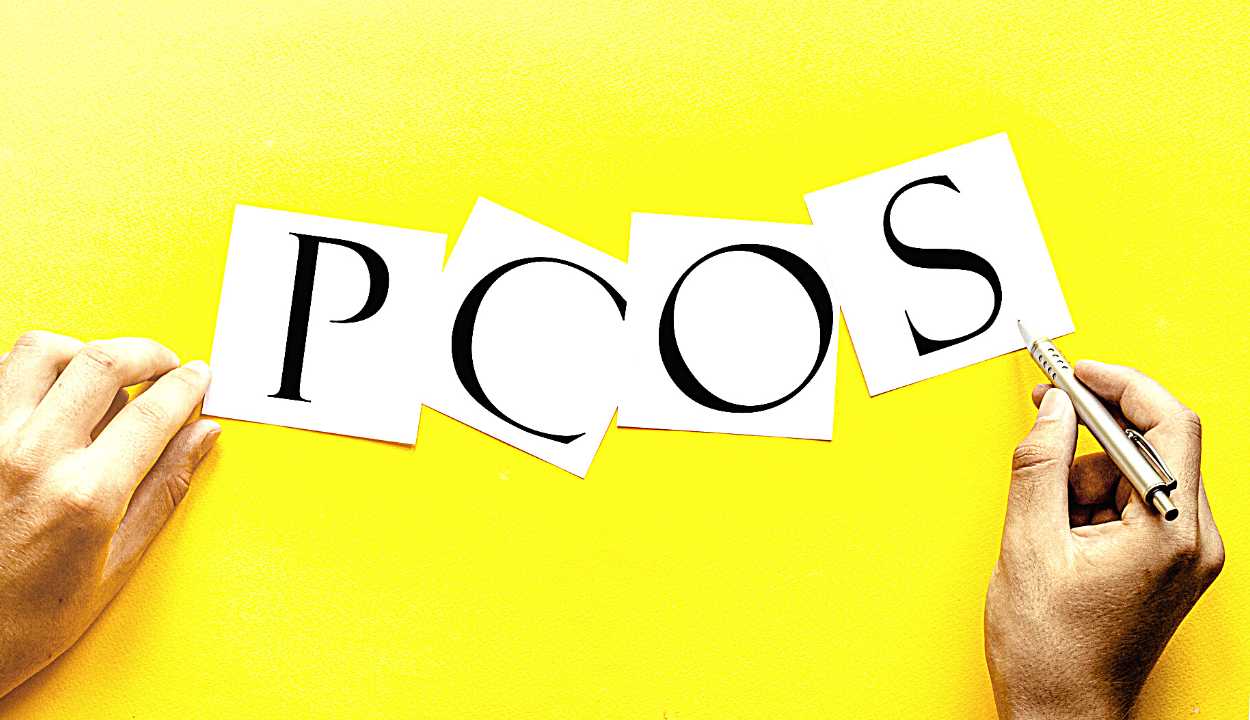
Usually, females do not relate acne problems or facial hair to any serious disorder; this is why women are diagnosed with PCOS at severe stages a lot. PCOS affects the female body in various ways and makes it vulnerable to many high-risk diseases.
- PCOS increases blood cholesterol levels which, if not controlled on time, leads to heart problems.
- The ovaries of affected females may get enlarged, causing multiple cysts to grow. This condition leads to improper functioning of ovaries.
- Increased pelvic pain, followed by heavy menstrual bleeding, leads to pelvic complications.
- Anxiety and depression may be linked to PCOS, causing negative emotional effects.
- The menstrual cycle gets disturbed due to irregular ovulation, making it hard to conceive.
- Women suffering from PCOS usually have high rates of blood pressure.
- Due to the lack of ovulation, the woman’s body produces estrogen instead of progesterone. With insufficient progesterone production, the endometrium or the womb lining becomes thick, leading to heavy bleeding. If not controlled on time, the lining grows multiple times, causing endometrial hyperplasia, eventually leading to endometrial cancer.
Diagnosis of PCOS
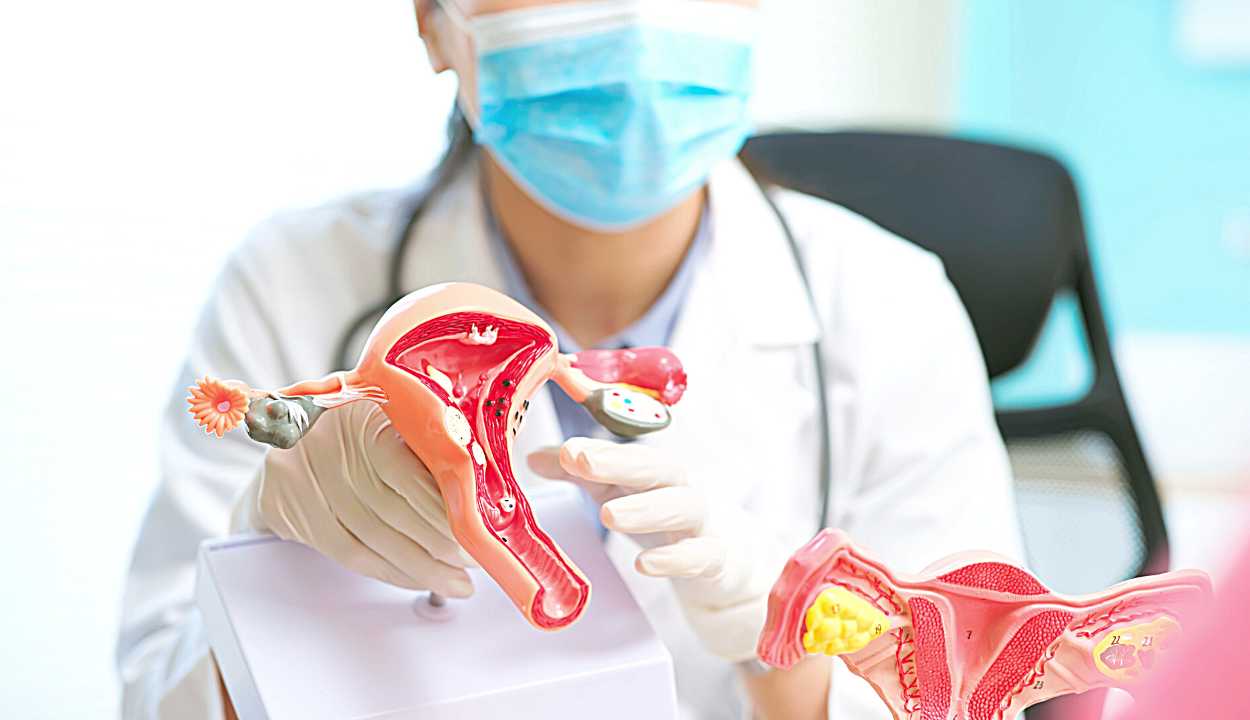
Sometimes, PCOS symptoms go unnoticed, making it nearly impossible to diagnose PCOS at the early stage. If not diagnosed timely, it can lead to cardiovascular diseases and type 2 diabetes in severe cases.
Early diagnosis and positive lifestyle changes can help treat PCOS symptoms and help females conceive. Although there is no specific test to diagnose PCOS, various medical tests and examinations can be made to diagnose PCOS based on its symptoms.
Physical Examination
The doctor or health consultant will examine your blood pressure, BMI, waist size, and the body areas where hair growth is thickening.
Ovaries Examination
The doctor also sometimes examines the ovaries to see if they are swollen or if any cysts have grown. A vaginal ultrasound may be performed for ovaries examination and to check the womb’s lining.
Menstrual History
The doctor will ask about the menstruation irregularity, the bleeding rate, and weight changes.
The Hormonal Levels
Since PCOS is related to androgens level, your doctor will also check the androgen and sugar levels in your blood.
Blood Work
One of the main diagnostic tools for PCOS is blood work. This can help to identify hormonal imbalances and other markers that may indicate the presence of PCOS. If you are seeking blood work near you, you can start by checking in with Private MD Labs
Types of PCOS
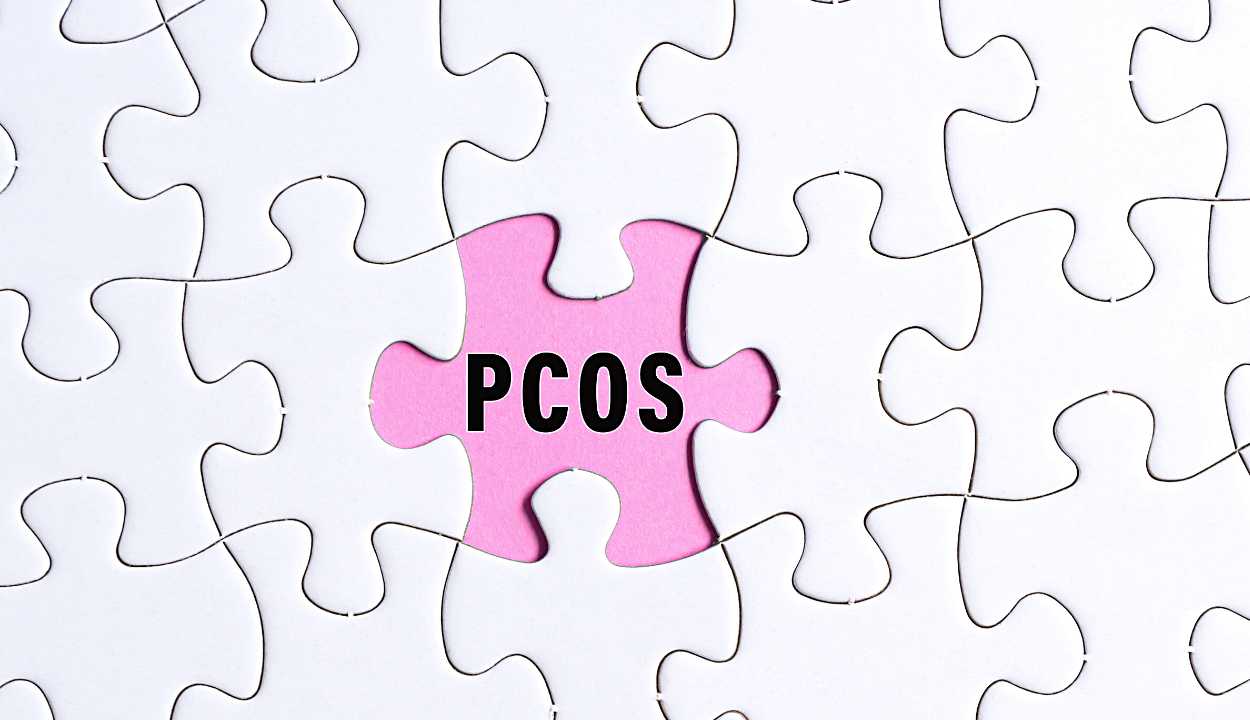
PCOS is a hormonal disorder common among females of reproductive age, but did you know that PCOS has different types? These types are commonly referred to as PCOS phenotypes. Each comes with its own set of symptoms.
If PCOS is not controlled through medication or lifestyle changes, it can be life-threatening in its severe stages.
Inflammatory PCOS
Chronic inflammation leads to inflammatory PCOS, which causes inflammation in the entire body. Under this condition, the female body produces higher levels of testosterone that later causes various digestive issues, extreme fatigue levels, headaches, eczema, or hives.
To treat inflammatory PCOS, it is recommended to avoid food that causes insensitivity, address and fix gut issues, and avoid environmental toxins.
Pill-induced PCOS
Females who take regular birth control pills tend to encounter pill-induced PCOS. The use of pills affects ovulation, and if the pills intake continues for a longer time, it can disturb the entire ovulation process, resulting in PCOS.
The surge in androgen levels, even for a temporary time slot, can result in pill-induced PCOS. To recover from this type of PCOS, it is advised to take anti-androgen supplements to tackle the excess androgen stimulation.
Insulin-resistant PCOS
A high level of insulin in the blood leads to high production of androgens, causing the body to suffer from insulin-resistant PCOS. Insulin-resistant PCOS is more likely to occur than any other type of PCOS.
Controlling blood sugar levels through diet, medicines, and lifestyle modifications is essential to control insulin-resistant PCOS.
Adrenal PCOS
Adrenal PCOS has only a 10% occurrence among all the PCOS phenotypes, but that does not make it less risky. If your body produces a high level of DHEAS from the adrenal glands while the level of testosterone and androstenedione remains normal, the chances are higher that you’re suffering from Adrenal PCOS.
This type of PCOS is caused by an abnormal stress response similar to congenital adrenal hyperplasia. Treatments such as magnesium, zinc, and pantothenic acid are suggested to recover from Adrenal PCOS.
Hidden Type of PCOS
The female ovaries require certain nutrients for them to perform properly. Any blockage in ovulation due to certain nutrient deficiency, thyroid disease, low carbs intake, and higher consumption of artificial sweeteners affect ovulation, further leading to a disturbing level of blood insulin, making the female body suffer from PCOS.
How to Ovulate with PCOS Naturally?
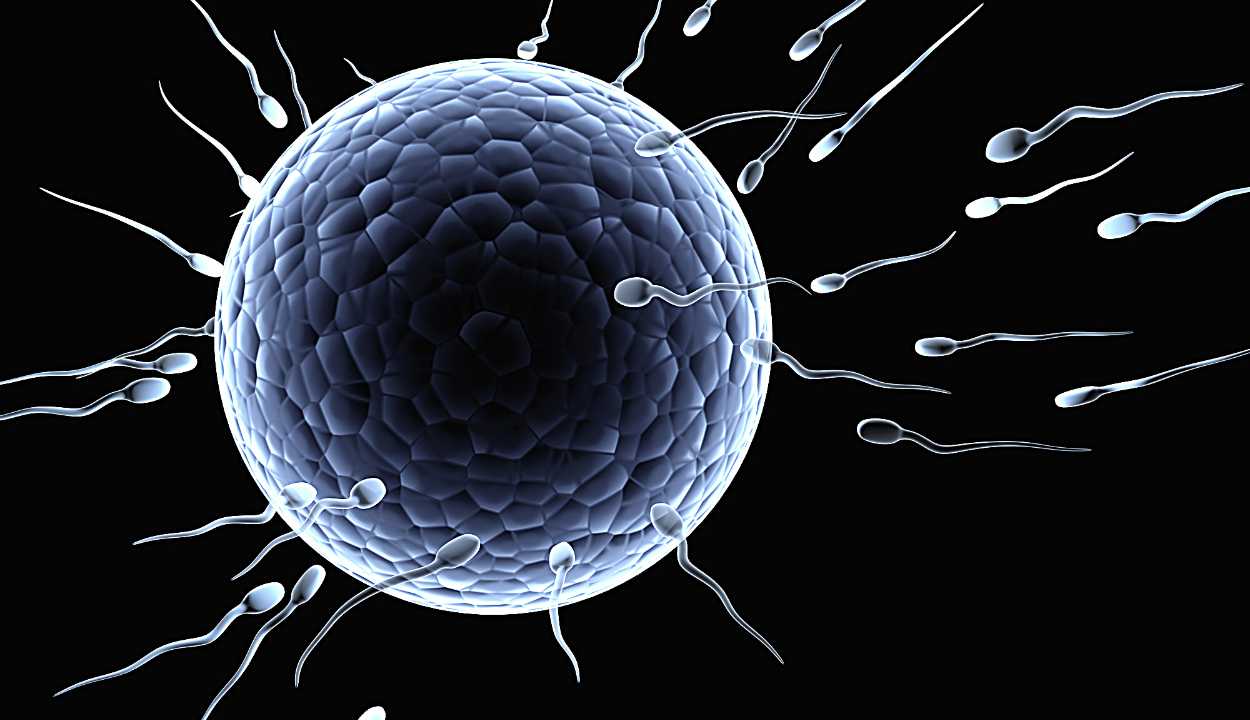
Ovulation is a natural phenomenon that occurs in females and is associated with the release of eggs. The released egg moves down towards the fallopian tube for fertilization. Regular ovulation is necessary for the reproductive health of females. PCOS causes disturbance to regular ovulation due to high levels of androgens, resulting in infertility among females.
Although there is no specific way to diagnose PCOS, there is still much evidence that even a woman who ovulates regularly can suffer from PCOS. After all the discussion on PCOS, a common question arises: ‘is it possible to ovulate naturally with PCOS?’
The simple answer to it is YES!
Females can ovulate naturally even if they are diagnosed with PCOS. There are natural ways to induce ovulation with PCOS, which are particularly helpful for those females who want to conceive naturally.
Diet
Most of the time, females with PCOS are told they can never get pregnant or improve their ovulation cycle. However, studies have shown that a female with PCOS can still ovulate naturally by eating a healthy diet.
An unhealthy diet with high carbohydrates elevates androgen levels, resulting in a poor metabolic system. This is why the first and foremost advice any doctor gives to an affected female is to improve her diet.
Dietary changes play a huge role in the health of the human body. In the case of PCOS, healthy diet intake is even more critical, especially for females who are overweight.
Consuming food rich in antioxidants like vitamins, folate, and lutein benefits the female reproductive system and helps her in natural ovulation. Intaking fiber, vegetable, lean proteins, and complex carbs are essential for women to treat PCOS and to ovulate naturally.
Here are important PCOS foods which you should consider to ovulate naturally and regularly.
Plant-based Proteins
Research suggests that consuming plant-based proteins rather than animal proteins is associated with a 50% lower risk of ovulation irregularity.
Plant-based proteins such as beans, legumes, nuts, and seeds benefit women who want to conceive with PCOS as these proteins also help in inducing natural ovulation.
Fruits and Vegetables
Fruits and vegetables are an essential part of a healthy diet, and if you struggle to ovulate naturally with PCOS.
You need to be very considerate, adding fruit and veggies to your meal plan. Vegetables such as beetroot and fruits like cherries, berries, and peaches are beneficial in regular ovulation.
PCOS Meal Plan
If a female wants to regulate her ovulation process naturally, her meal plan should contain ovulation-boosting nutrients. The essential food items that you should not forget to intake are:
- Almonds
- Banana
- Citrus fruits
- Chicken
- Carrots
- Tomatoes
- Garlic
- Dark Chocolate
- Asparagus
- Beetroot
Herbal Remedies
Herbs have produced huge benefits on human health by strengthening the immune system. Although herbal remedies are a natural way to cure a disease, you should not start taking herbal medications without consulting a doctor.
Various herbs for PCOS treatment are available that also help in natural ovulation. Some common and popular PCOS herbs are as follows.
Chaste Berry
Chaste berry helps improve the pituitary gland’s functionality, which is responsible for reducing estrogen and androgen levels and enhancing progesterone.
Dandelion Root
Dandelion Root helps get rid of excess hormones in the blood, which means lower testosterone levels. Menstrual irregularities come with excessive accumulation of hormones, so Dandelion is an effective PCOS herb to treat irregular ovulation.
Milk Thistle
Milk Thistle protects the liver from any damage and is also effective in controlling the excessive production of estrogen.
Licorice
Licorice is specifically associated with reducing testosterone levels in females and increasing ovulation. Licorice is also beneficial in treating acne and excessive hair growth in females.
Flaxseed
Flaxseed is commonly used in PCOS treatment as it helps metabolize estrogen and lower SHBG levels.
Essential PCOS Supplements
Health physicians suggest taking some vital supplements to boost metabolism and regulate ovulation.
Although you may obtain essential nutrients by following a healthy diet plan, it is impossible to intake all the essential vitamins and minerals from food alone.
Vitamin B
Vitamin B is essential in the healthy development of the fertilized egg, hence, playing a vital role in women trying to conceive.
Myo-inositol
Myo-inositol is a carbohydrate-based supplement with a chemical composition similar to glucose and greatly helps with the regular menstruation cycle and ovulation.
Omega 3
Since inflammation is highly associated with irregular periods, the intake of essential fatty acids is highly effective in improving the ovulation and menstruation cycle in females.
With Omega 3, you get the essential fatty acids that reduce body inflammation and help you in regular ovulation.
Regular Exercising
There is a high chance that obese females find it hard to conceive naturally since being overweight is highly associated with infertility. It is important to follow a workout routine to shed those extra pounds from moderate to highly intense exercise.
From brisk walking, dancing, cycling, bike exercise, and swimming to yoga, Pilates, and squats – every exercise, if followed consistently, helps decrease obesity, increasing your chances of naturally conceiving.
Lifestyle Changes
Not only diet and exercise, but you must also make lifestyle modifications to beat the infertility rate. The habits that negatively impact human health, such as smoking and alcohol, should be eliminated immediately.
Females who frequently drink often experience menstrual problems. Likewise, regular female smokers also delay conception and result in infertility.
Also, it is important to get enough sleep every day and improve your sleep quality. Avoid using electronic gadgets before going to bed and destress yourself from all the negativity in your surroundings.
How Does PCOS Affect Fertility in Women?
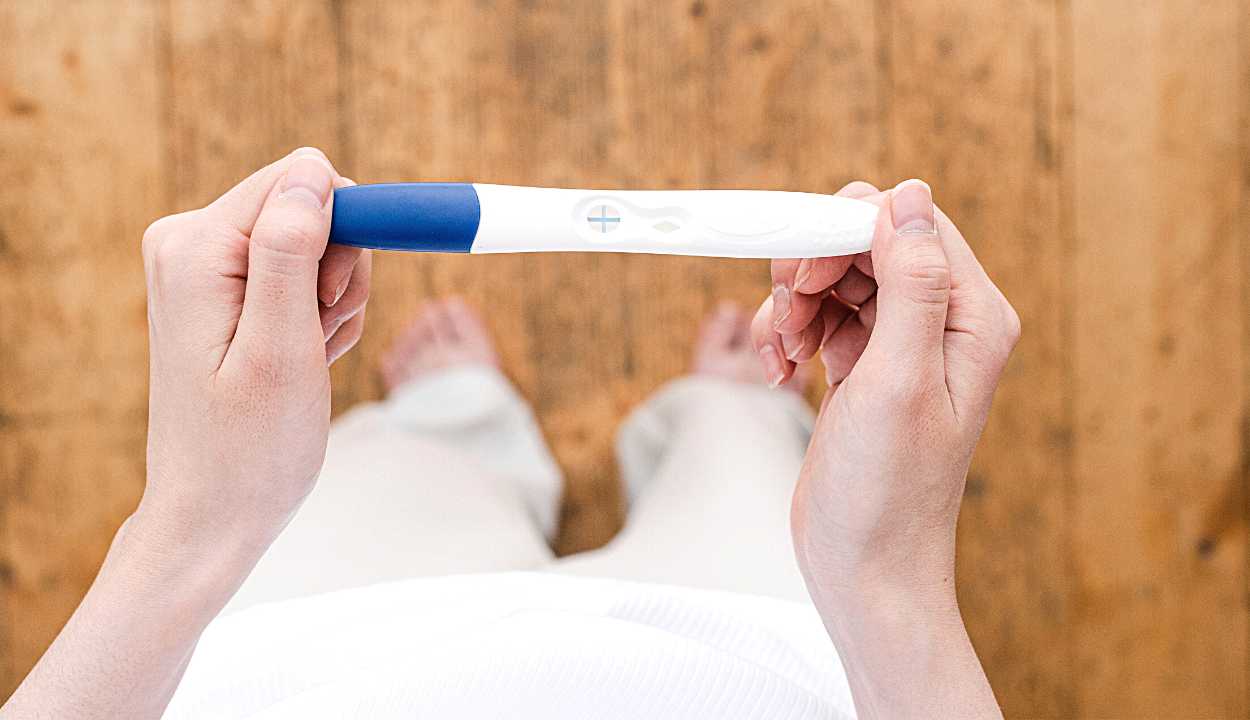
Although PCOS is one of the primary causes of infertility in most women, many women still get pregnant and ovulate regularly even with PCOS.
PCOS is a hormonal disorder that is associated with the higher production of the male hormone, androgen, which affects the female body and makes it difficult to conceive. Since eggs are not ejaculated regularly, the menstrual cycle gets disturbed, resulting in irregular periods.
The ovary gets enlarged with painful cysts forming inside, leading to the thickening of the outer ovarian membrane. These conditions are related to the cause of infertility in 70 to 80% of females.
Females who suffer from chronic health conditions such as PCOS are usually concerned if their bodies can bear a baby or if they can ever get pregnant. It is not evident that a woman with PCOS can never get pregnant. A PCOS-affected female can get pregnant, but it might take longer than a normal female.
PCOS affects ovaries but is not associated with complete infertility in females. Many females prefer to take fertility treatments if they find it hard to conceive naturally with PCOS.
PCOS and Pregnancy
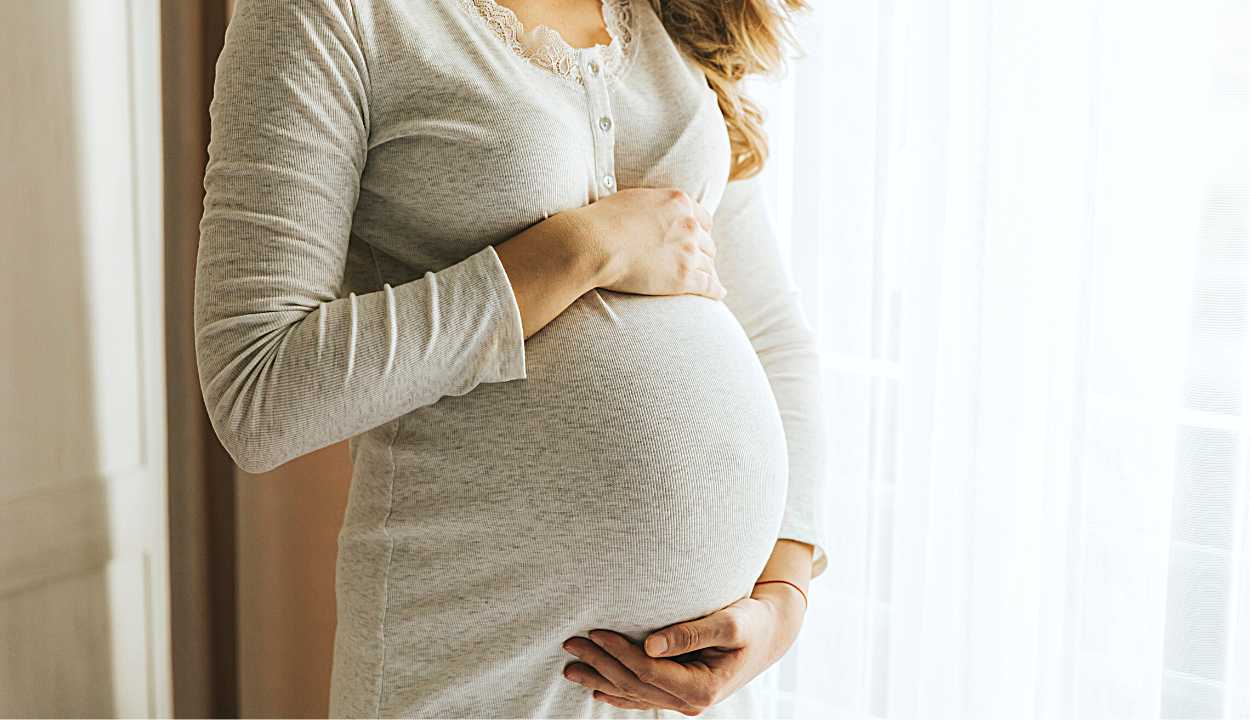
Every female body is different, so every female shows various signs and symptoms when affected by PCOS. As stated earlier, not every affected female suffers from infertility. There are still a lot of PCOS females who struggle to get pregnant.
There are no specific treatments for women to get pregnant who are affected by PCOS, but a few medications and lifestyle changes can make you conceive even with PCOS if you are struggling with it.
Moderating Body Insulin Level
Females who suffer from PCOS usually have high blood insulin levels, so their bodies cannot use it. This condition makes them suffer from type 2 Diabetes, especially in females 40 or above.
Doctors usually prescribe Myo-inositol (Ovasitol), Inofolic Alpha, and alpha-Lactalbumin to treat insulin resistance effectively in PCOS women.
Vitamins and Supplements
Fertility supplements are usually recommended for women affected by PCOS and who want to conceive a baby.
Some widely used supplements include B complex vitamins, Myo-inositol, zinc, copper, magnesium, and iodine.
IUD for PCOS
IUD or Intrauterine device is commonly used to treat heavy periods and to prevent pregnancy by inducing ovulation. Regular ovulation leads to better chances of fertility in PCOS women.
IUD is not recommended if a female is pregnant, has liver disease, or has any cancerous tumor in any part.
How Many Chances of Getting Pregnant are There If I Have PCOS?

The body circumstances of each individual are different, so there is no exact ratio of those PCOS women who can get pregnant. Moreover, some female bodies respond fast to specific fertility treatments, while many female bodies are passive or lazy to respond to them.
If a woman affected with PCOS is 35 or below, she has a comparatively higher chance of getting pregnant after taking certain fertility medications or treatments.
According to health research, 3 out of 4 women with PCOS can conceive after 6 months of medicines of clomiphene citrate. 4 out of 5 PCOS females start ovulating regularly after taking hormonal injections or undergoing laparoscopic surgery.
Why is Getting Pregnant Challenging with PCOS?
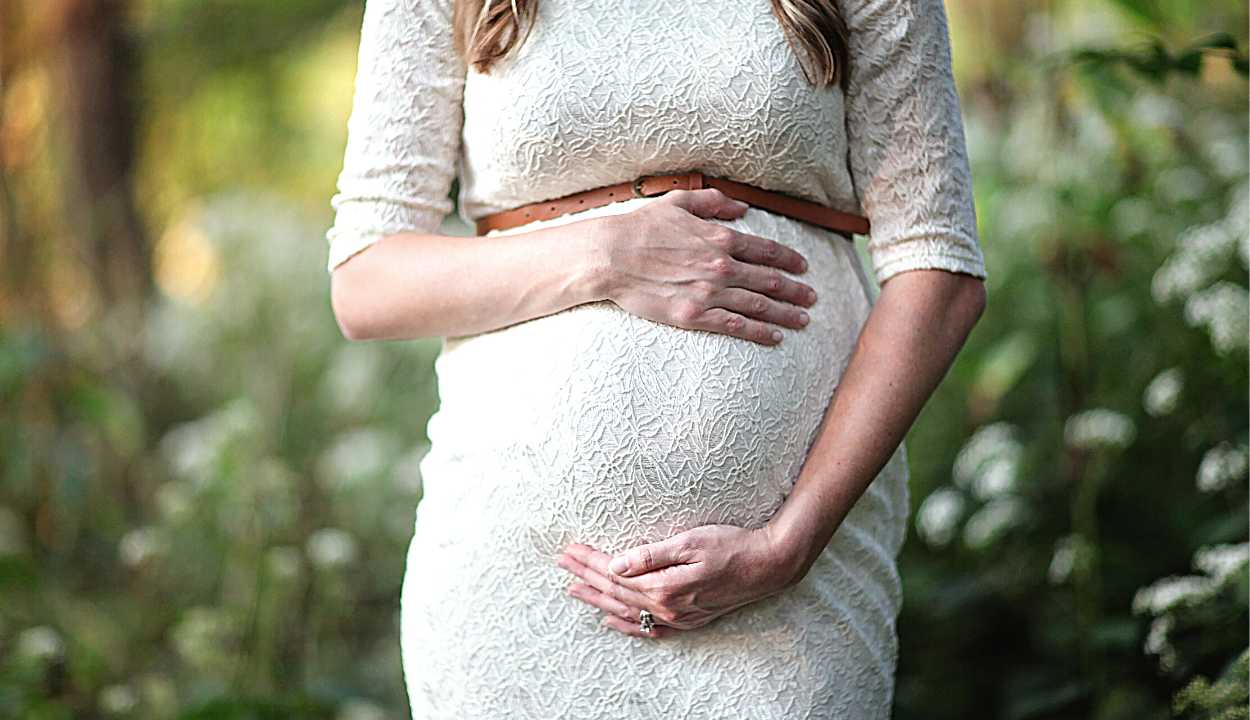
The females diagnosed with PCOS have a higher number of antral follicles in their ovaries. When the female body produces higher levels of androgens and causes an imbalance in hormone production, it affects the follicle count and makes them grow improperly.
This rapid growth in follicles suppresses the release of an egg during the menstrual cycle, commonly referred to as anovulation. Anovulation or irregular ovulation due to PCOS is the leading cause of infertility in most women.
Side Effects of Getting Pregnant with PCOS
A PCOS-affected female who is of normal weight has a better tendency to conceive than a PCOS female who is obese. A PCOS female has the full capacity to deliver a healthy baby naturally or through medical treatments, but for some, there are certain risks attached to pregnancy.
Common risks that are attached to pregnancy in PCOS females are:
Miscarriage
Miscarriage may happen even in a healthy female, but in a female suffering from PCOS, the miscarriage chances are higher.
For females with PCOS, the chances of miscarriage become 3 times higher than normal females.
Gestational Diabetes
The chances of gestational diabetes are 3 to 4 times higher in pregnant females diagnosed with PCOS. If diagnosed and treated earlier, a healthy pregnancy duration can be achieved.
Slow Postpartum Recovery
Since certain complications are attached to pregnancy in PCOS females, the situation leads to c-section delivery.
The recovery time after cesarean delivery in such females takes a considerable high time as compared to vaginal delivery.
High Blood Pressure
Females with PCOS usually encounter high blood pressure throughout pregnancy. If the condition of high blood pressure is not treated on time, it leads to pregnancy complications.
Best Age to Get Pregnant with PCOS
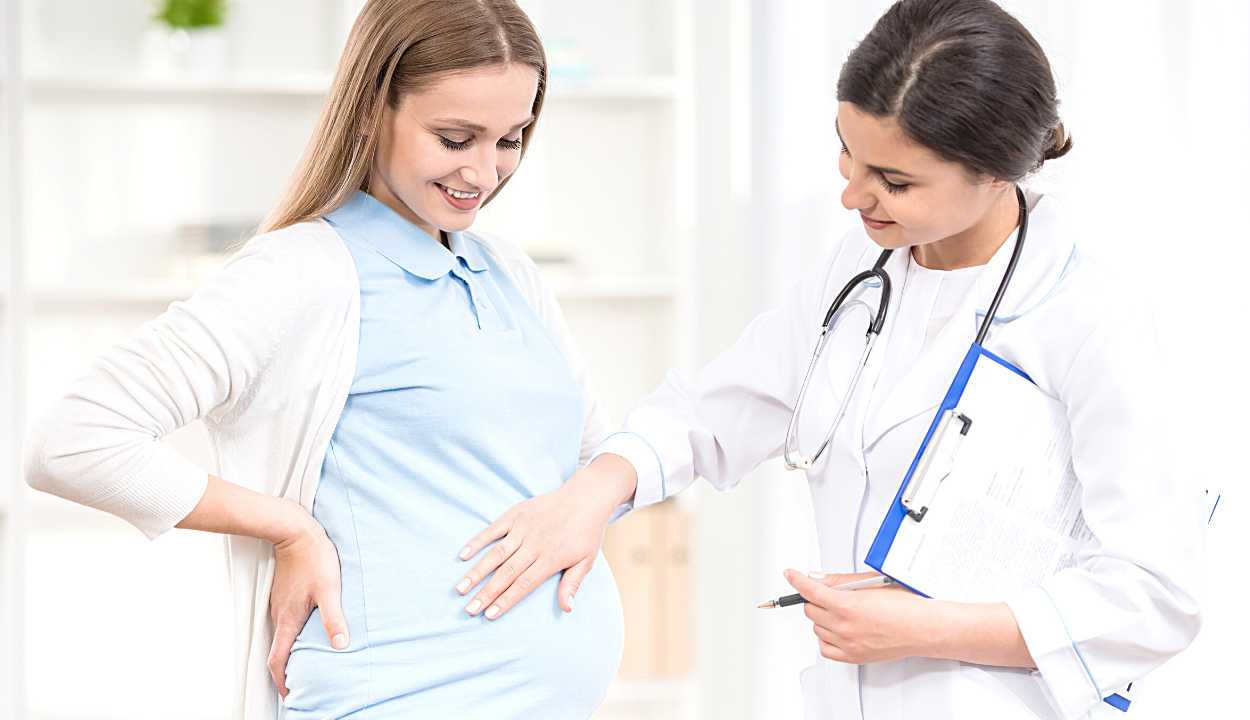
The chances of conceiving with PCOS increase if your body mass index and hormone production are controlled. However, there is a particular age parameter for females to get pregnant with PCOS, and once a female crosses that age limit, the chances of conceiving with PCOS decline faster.
The PCOS pregnancy rate in females 37 or above is lesser and can produce certain complications. The best age to get pregnant with PCOS quickly is below 30; in this age group, the body responds faster to medical treatment and has a better tendency to conceive naturally.
Conceiving at the age of 30 is easier as compared to conceiving at the age of 40 with PCOS. If a woman above 35 cannot conceive even after a year of sexual interaction, she is suggested to consult a doctor.
Age Effects on Getting Pregnant with PCOS
It is quite complicated for normal females to conceive naturally at age 37 or above. Pregnancy at later ages results in decreased oocyte count and reduces chances of healthy and live birth.
Various research has shown that PCOS-affected females usually have sustained fertility rates as they age, so there is no extreme impact on their fertility.
Another study has shown that females with PCOS have better oocyte count through IVF treatment compared to same-age females without PCOS.
Precautions for PCOS Pregnancy
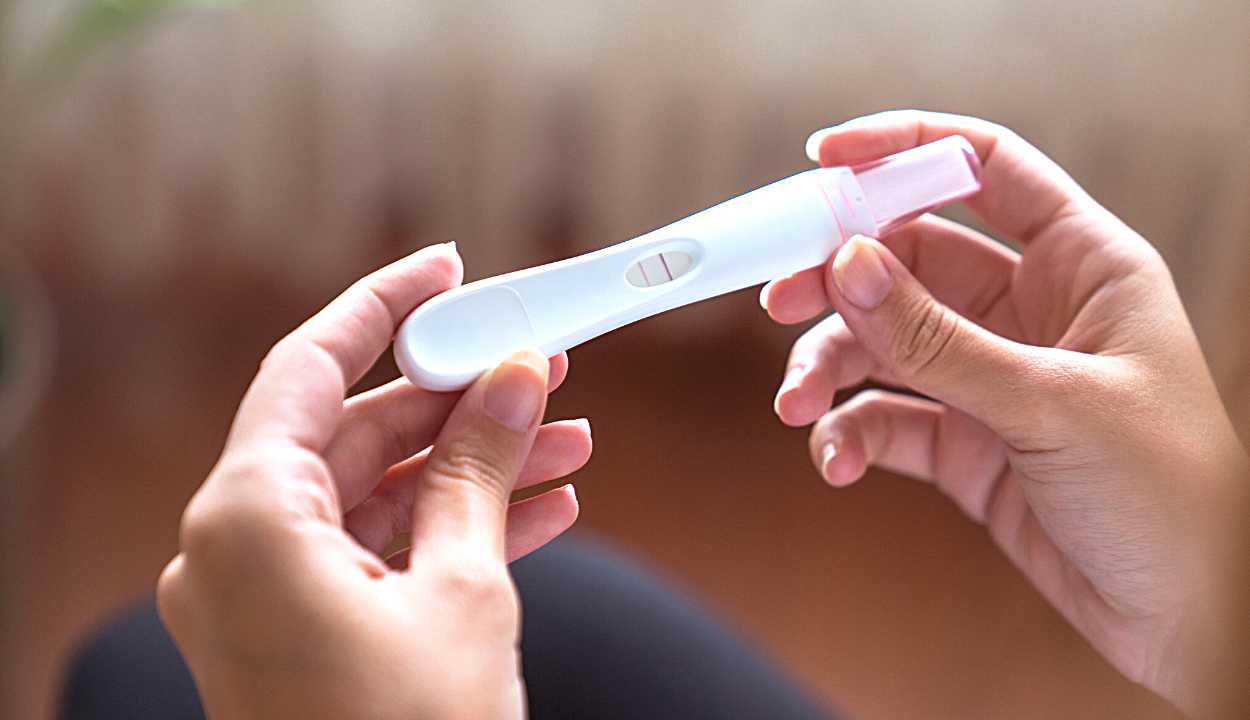
PCOS pregnancy is different than a normal pregnancy, especially in females who are obese. During pregnancy, it is recommended for PCOS-affected females to monitor their health regularly and keep checking their blood sugar and blood pressure levels.
Making dietary changes also plays a vital role in ensuring a healthy pregnancy. The intaking diet that is rich in protein and fiber and low in carbohydrates regulates blood sugar levels.
During pregnancy, PCOS females are advised to avoid alcoholic beverages and caffeine as these liquids contaminate blood with high sugar levels.
Keep consulting with the doctor in case of any minor disturbance in the body or any change in sugar and blood pressure levels is highly recommended for PCOS-affected females.
PCOS and Menopause
People usually mistake PCOS with menopause, but one thing that needs to be cleared up is that menopause does not cure PCOS. The females who reach the age of menopause still show certain signs of PCOS.
One common thing between menopause and PCOS is that they disturb the hormonal balance in the female body. PCOS triggers the production of male sex hormones, i.e., androgen, and lowers progesterone production. This condition leads to an irregular menstruation cycle.
On the other hand, a female, before menopause, starts producing lesser progesterone, which ultimately hinders ovulation. A female encounters menopause when she is not menstruating for the entire year.
The menopause age in normal females is usually 50 to 51. However, females who are suffering from PCOS usually reach the stage of menopause almost 2 years later than normal females.
The stage before menopause is usually referred to as perimenopause, starting in the 40s and even 50s. During this stage, the human body starts showing certain symptoms such as irregular periods, night sweats, vaginal dryness, thinning hair on the head, and pain in sexual intercourse.
So, during the perimenopause stage, taking certain measures to manage PCOS, such as managing weight, improving sleeping patterns, easing night sweats, and taking proper medication, is essential.
Other PCOS Issues and Their Treatment

PCOS is related to fertility and various issues attached to it, such as severe acne, body inflammation, and excess hair growth in the body areas.
Acne Treatments
PCOS acne usually occurs in the lower section of the face, such as the cheeks, chin, and upper neck. This is the most common PCOS acne pattern that occurs in females. The acne caused by this condition is usually larger than other types of acne.
Various antibiotics, antibodies, and Retinoids can be used to treat acne, which is caused due to PCOS. Different skin acne treatments are also suggested depending on the severity of the acne. For regular acne, pills, gels, and creams can be used.
Excessive Hair Growth
Women with PCOS usually have excessive hair, also called hirsutism, on the body areas, which look weird, especially on the face. The unnecessary hair grows on the face, chin, legs, torso, and pubic area.
When PCOS affects females, the elevated insulin level triggers the production of the male hormone testosterone. Due to the excess of male hormones, some changes start to appear in females, and male-pattern hair growth on the body is one of those changes.
To slow down hair growth, the daily use of eflornithine is suggested, which is FDA approved and used to treat unnecessary hair growth. Electrolysis, laser hair removal, and intense pulsed light therapies are most widely used to treat excessive hair growth.
Insulin Balancing Agents
A female body affected by PCOS has a lower tendency to use insulin effectively. When the body produces insulin resistance, a large amount of insulin circulates in the bloodstream, which causes issues like irregular menstruation, obesity, and infertility.
Since the insulin level in females affected with PCOS is higher, certain medications can be used to keep insulin levels balanced in the body. Not only are these medications help with stabilizing glucose levels, but they also reduce infertility chances.
Hair Loss
The PCOS-affected female body starts producing androgens that cause hair thinning on the head, elevating male-baldness patterns. This is usually termed androgenic alopecia, in which hair starts thinning or shedding from the front of the scalp. The lost hair in this condition does not grow back unless you opt for certain hair treatments.
A few common treatments for hair loss due to PCOS are:
- Oral Contraceptive pills
- Spironolactone
- Minoxidil
- Finasteride
- Hair transplant in severe cases
Medical Treatments, Supplements & Diet to Improve PCOS Fertility

One of the first things recommended by any health specialist to improve PCOS fertility is to make lifestyle modifications. Since a healthy lifestyle brings a lot of positive changes, even a slight change can produce long-lasting benefits to human health.
But if you’re still struggling with PCOS even after changing your lifestyle, this is the time that you should consult a doctor to start taking some medical treatments. Medical treatments which are prescribed for this condition require regular monitoring.
A few common PCOS medicinal treatments are given below.
Metformin
Although Metformin is not FDA approved for treating PCOS, it is one of the finest medicines that makes PCOS-affected bodies sensitive to insulin.
Since insulin level increases in PCOS, Metformin makes sure to lower the glucose level. It also reduces the production of androgens and stimulates regular menstruation in females.
It is always recommended to consult your doctor before taking Metformin because every PCOS symptom is different, and Metformin is not guaranteed to provide you with benefits in every condition.
Birth Control Pills
Consuming birth control pills is an effective way to regulate the menstruation cycle and save endometrium from getting thick, lowering the risk of endometrial cancer.
Birth control pills usually contain estrogen, which decreases the androgen level and increases better chances of ovulation—regular ovulation results in better fertility rates in females with PCOS.
Clomiphene Citrate
Clomiphene Citrate or Clomid is highly beneficial for females to ovulate naturally and has been used for many years. Clomid, for many years, has been considered the go-to initial treatment against infertility.
Many females have reported that using Clomid along with lifestyle changes has helped them with a better fertility rate.
Gonadotropins
Many fertility specialists suggest injecting Gonadotropin with IVF, IUI, or without. In most Gonadotropin products, the main composition is the Luteinizing hormone and Follicle-stimulating hormone, which are beneficial in treating infertility.
Letrozole
This infertility treatment through the oral medication of Letrozole is comparatively newer but highly recommended by fertility specialists. To encourage regular ovulation and healthy pregnancies, Letrozole is mostly recommended with clomiphene.
Recent research has shown that Letrozole is more effective than clomiphene in most women to achieve regular ovulation patterns.
These medications are helpful in treating infertility in females with PCOS and have shown impressive fertility results in 70 to 80% of affected females. If the medications fail to generate any positive response in ‘poor respondent’ females, the doctors suggest certain medical treatments.
Laparoscopic Ovarian Drilling (LOD)
Laparoscopic Ovarian Drilling (LOD) is an effective operative treatment in females who fail to respond to medication. In this technique, the ovarian membranes are punctured using a laser, resulting in a reduced testosterone level.
With the reduction in testosterone hormone, the eggs start releasing every month leading to regular ovulation that ultimately results in better fertility.
Although Ovarian Drilling is not related to regular ovulation in every affected female, this is considered to make ovaries more respondent to other fertility medications.
Intrauterine insemination (IUI)
Intrauterine insemination is commonly used artificial insemination that doctors prefer to treat infertility in women with PCOS. During this medical procedure, the sperm is taken, washed, and placed in the uterus to move toward the fallopian tube to fertilize the egg.
IUI is proven to be an effective treatment to increase fertility in PCOS females. Patients who go through Intrauterine Insemination are often suggested to take oral medication such as clomiphene, and gonadotropins to maximize their fertility chances.
In Vitro Fertilization (IVF)
In Vitro Fertilization (IVF) is commonly recommended for patients with blocked tubes, advanced age, or developed certain male traits. During this treatment, eggs are removed from the ovary, fertilized outside the female body, and put back into the womb.
The females who do not respond to medication or have undergone tubal ligation surgery are mostly recommended IVF for fertility.
Diet for Better Fertility
Females who want to improve their fertility chances without undergoing fertility treatments should make some dietary changes for better performance.
- Start consuming complex carbohydrates such as rice, whole grains, and beans.
- Regularly consume fresh fruits and vegetables instead of fresh juices.
- Make your plates smaller and eat in small portions.
- Cut down on pastries, cakes, canned food, snacks, and soft drinks.
Lifestyle Modifications
It is an admitted fact that adopting a healthy lifestyle brings a lot of positive changes in the human body and helps it with a protective shield against various disorders.
So, if you are diagnosed with PCOS, regardless of your age, by making specific changes in your daily life routine, you can encounter PCOS side effects and improve the chances of fertility.
Try to use stairs instead of elevators. Add any physical activity to your daily life routine. Start going to the gym or invest in home gym equipment.
Weight Loss
PCOS Females who are overweight or obese have more chances of infertility than those PCOS women who are not overweight. Most of the time, those extra pounds are associated with infertility, so you need to shed those pounds as soon as possible.
Excess weight disturbs the hormonal balance in the body, which causes troubles in the reproductive system. Luckily, if you lose 5 to 10% of your extra fat, there are significant chances to conceive naturally with PCOS. So, weight loss is important for women with PCOS.
Frequently Asked Questions (FAQs)
Is inositol good for PCOS?
Inositol is highly effective in treating insulin resistance in females with PCOS.
Is PCOS genetic?
Those females who have PCOS genes have proven to be more susceptible. PCOS has a genetic component affecting females with a genetic history of PCOS.
Is PCOS an autoimmune disease?
Various studies have shown a close association of PCOS with antibodies which is why PCOS is considered an autoimmune disease.
How to lower testosterone PCOS?
Taking Vitamin D supplements greatly helps in reducing testosterone that is produced fast in PCOS females.
How does birth control help PCOS?
Birth control pill helps regulate ovulation by producing higher progesterone and estrogen in the female body.
What is the difference between PCOD & PCOS?
PCOD is a condition in which the ovary produces immature eggs in bulk, resulting in cyst formation. At the same time, PCOS is a hormonal disorder in which female ovaries do not release eggs for fertilization.
Does PCOS cause infertility?
Yes, PCOS is one of the top reasons for infertility in females. However, PCOS alone is not the cause of infertility in each affected female.
Are periods painful in PCOS?
The hormonal imbalance caused by PCOS results in painful periods, leading to cramping and even bloating.
What is the difference between PCOS and endometriosis?
Endometriosis is when a specific tissue that forms the uterus lining starts growing outside. At the same time, PCOS is an ovarian syndrome in which female ovaries do not ovulate at regular terms.
What is the relation between PCOS and thyroid?
Although there is no relationship specified between PCOS and thyroid. According to NCBI, women who suffer from PCOS are more likely to suffer from thyroid disease.
Is there any pelvic pain in PCOS?
Most PCOS-affected females have been reported to inducing pelvic pain, especially PCOS lower abdominal pain, probably due to the cysts formation or immature follicles.
Exercise for PCOS Belly Fat

The body changes resulting from PCOS usually result in phycological distress, such as the growth of excessive hair on the body parts and weird PCOS belly fat.
Various studies have shown that having lesser to zero physical activities in daily routine also contributes to having PCOS in females.
So, the first and foremost thing you should start doing right from the moment you get caught with PCOS is losing weight. With the trigger in androgens, the fat accumulates around the abdomen, and the affected female’s body starts looking apple-shaped.
You should start doing various exercises to reduce the PCOS belly. These exercises include cardio, strength training, High-Intensity Interval Training, Mind Body, and Yoga.
Other Ways to Effectively Manage PCOS

Shifting to a healthy and active lifestyle changes a body, especially under certain conditions such as PCOS. So, it’s not just regular exercise that produces the result. You need to adopt certain routines to improve your health status.
- Skip the use of alcoholic beverages.
- Entertain your fiber requirements by consuming a portion of colorful veggies each day.
- Take proper sleep.
- Do not eat right before going to bed.
Bottom Line
Since the severity of PCOS differs in every human being, the treatments and medications will induce different effects on each female body. You should immediately consult your doctor whenever your body starts showing symptoms of PCOS.
Do not give up becuase with medical treatments, lifestyle, and dietary changes, it becomes easier to conceive a baby.
READ MORE

Emily Smith is a talented content writer, wielding words to create captivating stories and informative articles across a wide range of topics. With a passion for effective communication and a love for research, Emily consistently produces engaging and valuable content. She’s dedicated to conveying ideas clearly and compellingly, making her a sought-after voice in the digital sphere. When not writing, Emily enjoys immersing herself in art, nature, and culinary adventures for fresh bursts of creativity.




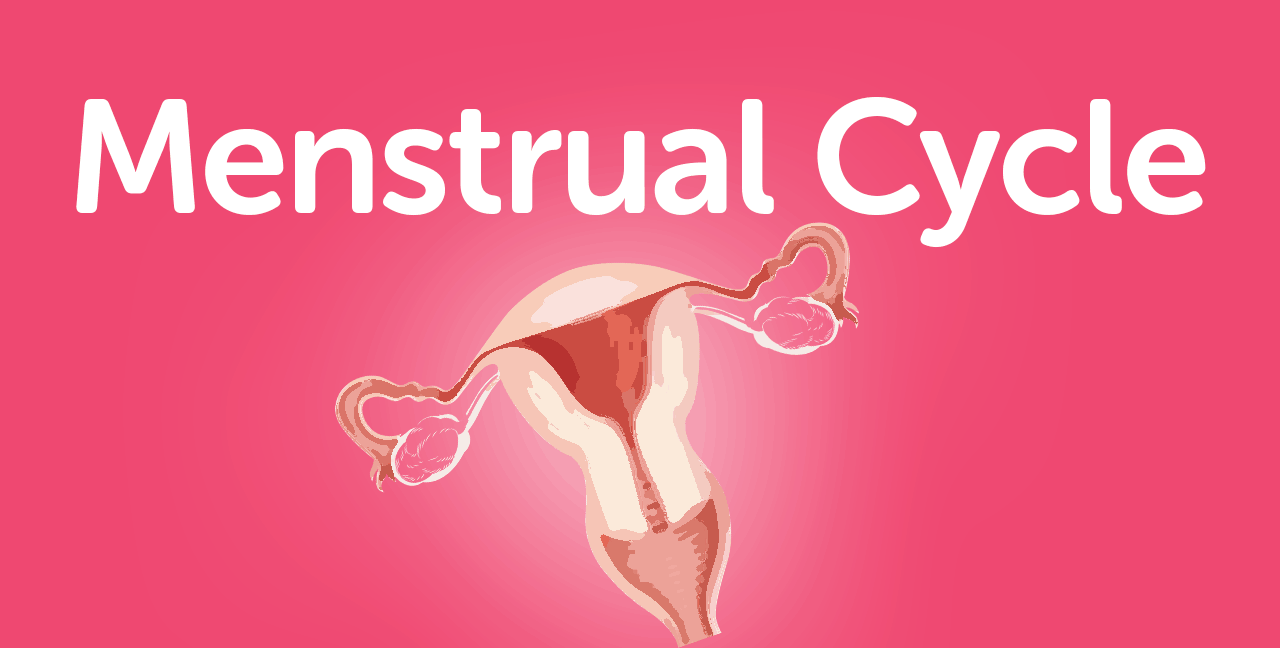


Loading…